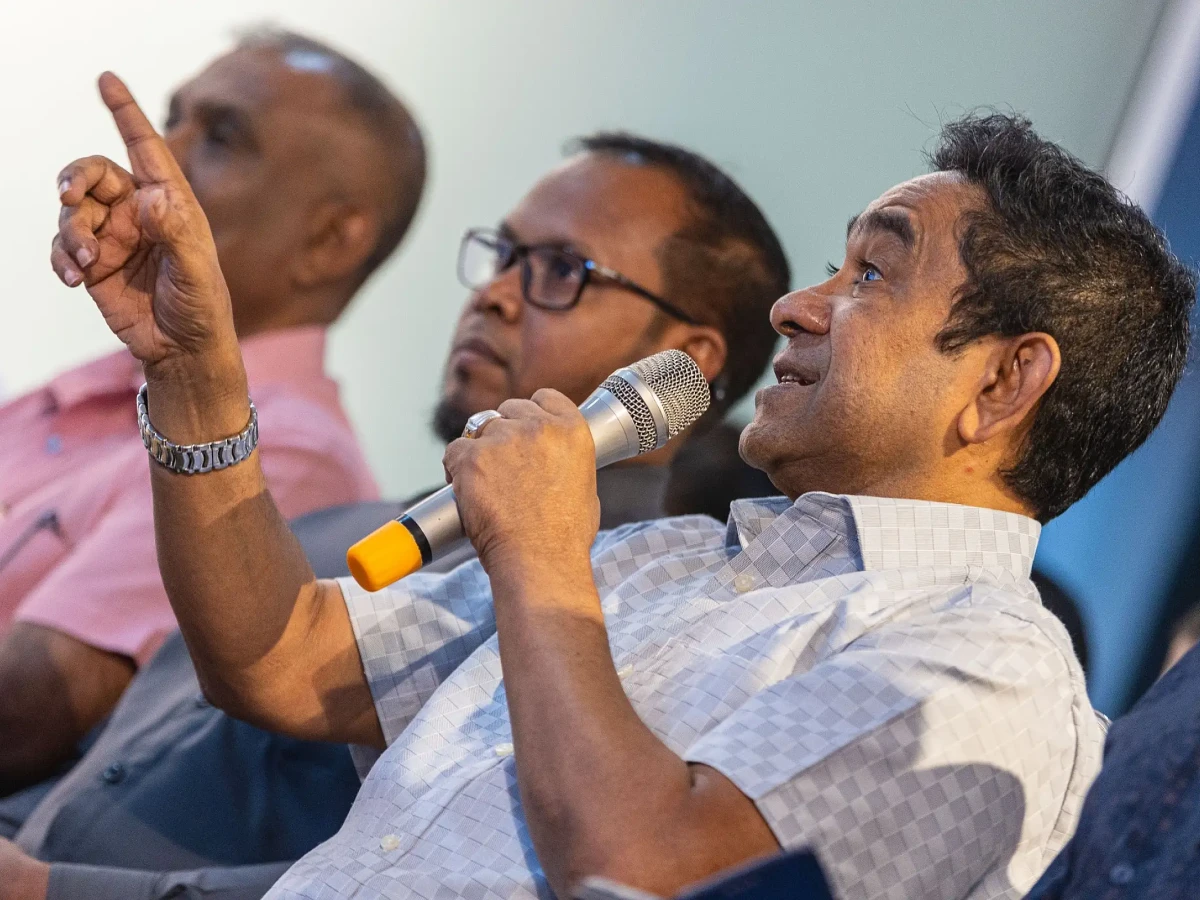
Ask foreign banks to invest $500m annually, Yameen tells govt
Yameen concluded by urging the government to adopt measures that align with the realities of the economy.
Former President Abdulla Yameen on Tuesday expressed concerns over the economic policies affecting the tourism sector and proposed measures to address the ongoing dollar shortage. Speaking on Channel-13, Yameen urged the Maldives Monetary Authority (MMA) to require foreign banks operating in the Maldives to inject $500 million annually into the local economy instead of imposing new financial rules on businesses.
Yameen criticised the central bank’s decision to require tourism businesses to exchange $500 per tourist at a local bank, warning that such policies could harm the tourism industry, which supports thousands of jobs and contributes significantly to the national economy. He emphasised that the government should not rely on the tourism sector to stabilise the currency and should instead facilitate its operations.
“These are the people who have brought prosperity to this sector and employed thousands of young people. Destroying this industry will have serious consequences,” Yameen said.
He questioned the MMA’s authority to dictate how businesses manage their income, stating that income earned after paying taxes belongs to individuals and businesses. He attributed the dollar shortage to government overspending, rather than debt repayment, and called on the MMA to address this issue by regulating government expenditure.
“The dollar is declining due to government spending. The MMA should inform the government to maintain expenditure within the dollar available in circulation,” Yameen said, adding that unethical spending has fuelled the growth of a parallel market where the dollar is traded at rates higher than the official rate.
Yameen also suggested that foreign banks operating in the Maldives should be required to inject $500 million annually from their parent institutions. If banks fail to meet this requirement, the MMA should consider revoking their licences, he said.
“There are five foreign banks operating in the Maldives. If each brings in $500 million annually, $2.5 billion would enter the economy every year. This capital could be used to fund projects repaid in dollars, easing the dollar shortage,” Yameen explained.
He warned that the current policies could erode public confidence in the banking and financial system, as well as in dollar deposits. Yameen called on the government to engage in discussions with the tourism sector to reduce unnecessary expenditure and formulate a balanced economic policy.
Yameen emphasised that tourism operators require dollars for foreign loan repayments and other expenses. The current policies force them to rely on the parallel market to obtain dollars, further complicating the situation.
“This is not a sustainable rule. Businesses should pay taxes to the state as required by law, but they cannot be forced to buy dollars at the official rate when the market conditions are vastly different,” he said.
Yameen concluded by urging the government to adopt measures that align with the realities of the economy and support the tourism sector's contribution to national growth.




